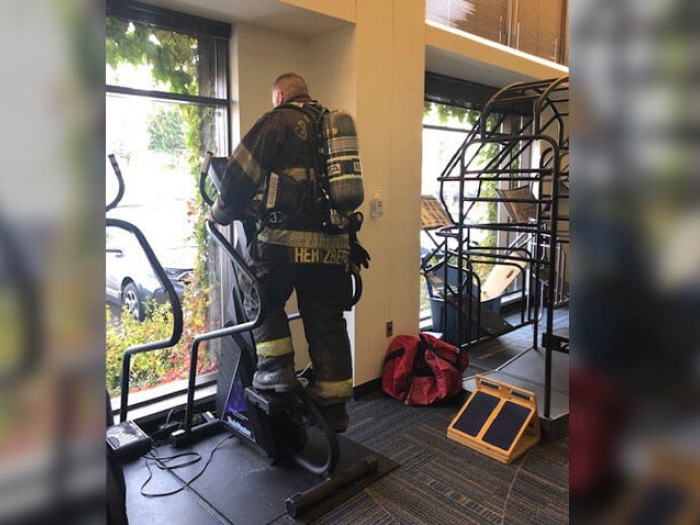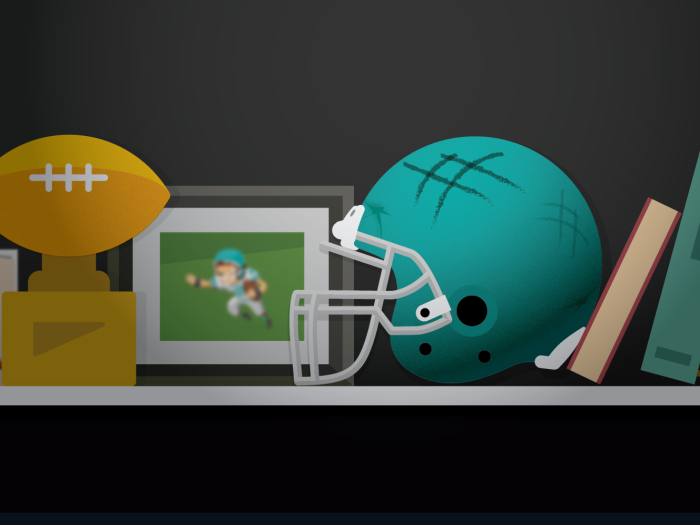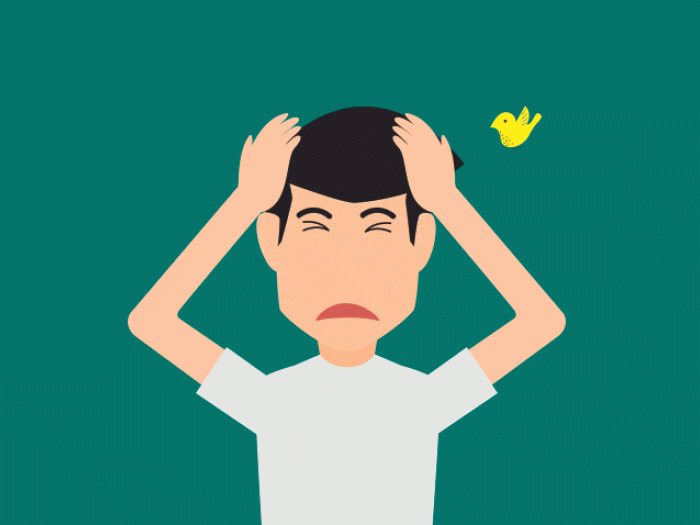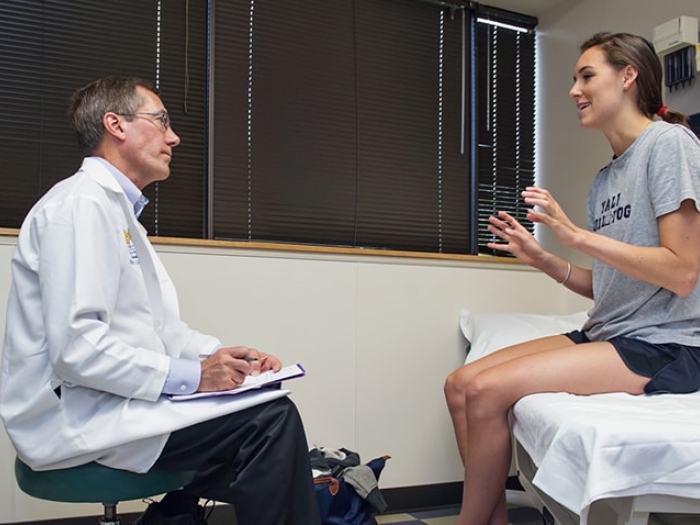A potential concussion brings questions and sometimes confusion. A Michigan Medicine sports neurologist debunks several myths about the injury.
7:00 AM
Author |

A concussion is a traumatic brain injury characterized by the head and brain moving rapidly back and forth, striking the inside of the skull. Symptoms vary based on the individual and the severity of the impact.
MORE FROM MICHIGAN: Sign up for our weekly newsletter
Signs of a concussion may include headache, sensitivity to light or sound, dizziness, sleep problems, nausea, changes in mood, confusion and memory problems.
Doctors can't detect concussion with a test or a scan — nor can they treat one with medication or surgery.
As publicity about the danger of concussion in contact sports continues to grow, Matthew Lorincz, M.D., Ph.D., a Michigan Medicine sports neurologist and co-director of Michigan NeuroSport, often hears common misconceptions about the injury.
In his own words, Lorincz addressed eight of them, explaining what patients should know:
Misconceptions about concussion
A concussion happens only with a blow to the head.
Not all concussions are the result of a blow to the head. The cause could be an indirect blow somewhere else on the body that results in the head and brain moving rapidly back and forth. This causes a temporary change in the brain's energy metabolism, resulting in concussion symptoms.
SEE ALSO: What Happens When You Get a Concussion — and What Happens Next
For example, a person in a car accident may sustain a concussion even though he or she had no direct head trauma. A concussion can't be ruled out simply because the head was not directly involved in the incident.
A person with a concussion always loses consciousness.
A concussion involves the loss of consciousness only about 10 percent of the time. And a person who loses consciousness as a result of some type of head trauma doesn't necessarily have a concussion.
Dilated pupils are a sign of concussion.
Pupil dilation is not a reliable sign of concussion, particularly when both pupils are dilated equally. Our pupils can become dilated when the autonomic nervous system's sympathetic branch is stimulated and the fight or flight response is triggered. This can happen when the body is under stress due to excitement, nervousness or anxiety.
However, when one pupil is more dilated than the other, it could be the sign of a structural brain injury that requires immediate emergency attention.
A person with a concussion must be taken to the emergency room.
This isn't necessarily true. If the individual doesn't have severe symptoms — loss of consciousness for more than a minute, increasing confusion, repetitive vomiting or seizures, severe neck pain, weakness or tingling in part of the body, agitation or restlessness — he or she can be cared for at home.
But it's important for the individual to be evaluated by a health care provider with expertise in concussion care within a few days of the concussion.
Concussion patients should be awakened every few hours so they don't lose consciousness.
While checking on the individual within the first four hours of a concussion is important, the risk of a more serious brain injury typically passes after approximately four hours. After that, the individual should be allowed to rest, sleep and conserve energy for the next 48 to 72 hours.
As a person further recovers from a concussion (following the 48- to 72-hour rest period), it's also important for them to maintain their normal sleep patterns. Often, patients experience ongoing fatigue, causing them to sleep during the day and resulting in nighttime insomnia. We recommend melatonin for these patients, along with the standard sleep "hygiene": no cellphones, tablets or TVs in the bedroom.
Pain medication should never be given after a concussion.
Over-the-counter acetaminophen (Tylenol) can be recommended to help reduce pain associated with a concussion but it should not be given until four hours after the concussion due to the rare possibility of a brain bleed.
SEE ALSO: When Concussion Symptoms Linger, a Neuropsychologist May Help
Other over-the-counter medications that may thin the blood, such as Advil and Aleve, should be avoided altogether within the first 12 hours of a concussion. After that time, when the possibility of a brain bleed has passed, any OTC pain medication can be taken.
There is never a role for opioids in the treatment of a concussion.
Physical activity should not be allowed following a concussion.
After the rest period following a concussion, light activity is recommended. This could be in the form of walking if the person feels his or her balance isn't compromised. We often recommend a stationary bicycle as a safer way for individuals to begin light activity.
Children who have suffered a concussion should avoid all screens and digital media.
These activities may make symptoms worse, especially in the first few days after injury. If symptoms become worse, the activity should be avoided. Once individuals become less symptomatic, however, it is important to get back to normal activities that do not worsen symptoms, including screen time.
If the child's concussion is related to a sport or activity, he or she is now disconnected from teammates and friends. Taking away a child's normal activities and social network — such as video games and cell phones — can be like taking away their identity, which can add to their sadness or anxiety. This can be harmful to the recovery process and could even prolong it.
Getting students back to school successfully is a top priority. In order to facilitate a smooth transition back to school, it is important to integrate the use of computers into the recovery process and not automatically avoid them.

Explore a variety of health care news & stories by visiting the Health Lab home page for more articles.

Department of Communication at Michigan Medicine
Want top health & research news weekly? Sign up for Health Lab’s newsletters today!





